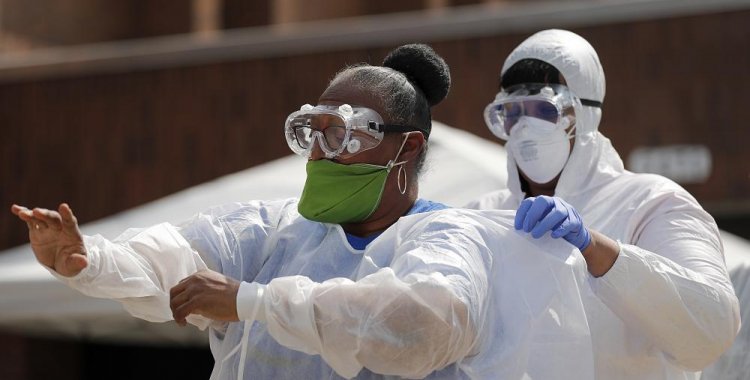Angola is, among the Portuguese-speaking African countries (PALOP), the one with the lowest number of cases of covid-19, but the one with the most deaths.
As of Wednesday, a total of 291 positive cases were reported in Angola, with 15 deaths and 93 recovered patients, while Cape Verde has 1301 cases and the same number of deaths as Angola, São Tomé and Príncipe 717 cases and 13 deaths and Mozambique 918 cases and six deaths.
Asked by the Lusa agency about lethality in Angola, compared to other PALOP countries, Maria das Dores Mateta associated the problem with the citizens' lack of knowledge about their health status.
"When we look at other countries that have more cases than ours and fewer deaths, we will not look at it as a neglect of our country or a lack of attention, we have to look at the individual who died, as it was," said the Angolan doctor.
According to the infectious medical doctor, "many people do not know their health status, because they are not in the habit of having a 'check-up' or are not able to."
“There are many diseases that people carry in their body without their knowing it and the diseases, they embrace”, said Maria das Dores Mateta, stressing that when there is already one disease and another one arises, “even if she is already an artist, asleep, she is exacerbated ”.
"We already have our endemic diseases, we are a country that has endemic diseases, which we know about and the Government takes care of them, but we have other diseases that are still neglected, they are being called now", he stressed.
The doctor stressed that, in the world, there are emerging and re-emerging diseases, “and all of this added together, makes a patient's fragility in relation to the virus greater, depending also on the genetics of each person”.
The specialist noted that, in medicine, “the patient is treated, not the disease”, noting that, therefore, even in the case of diseases with specific treatment and a large arsenal of drugs, many patients die despite being treated.
“For example, malaria. How many of us have malaria on a daily basis and only take 'Coartem' in tablets, even at home, and there are those people who die because they are affected by the severe forms of malaria? Some, even in the face of severe forms of malaria, taking antimalarial drugs are able to survive ”, he exemplified.
In that sense, he reiterated, "it is nobody's fault or that due attention is not being given, but it is because in medicine it is even so, it is the patient and not the disease".
Another particularity, also noted the doctor, has to do with the fact that, for the same disease, patients are medicated with different drugs, such as hypertension.
“Because each patient receives a medication formula better, we must always take this into account”, he stressed.
Maria das Dores Mateta underlined the importance of the individual knowing his health status, being followed by a doctor and following his instructions, because it will facilitate a better reaction to the infection.
"An asthmatic or hypertensive patient, who complies with his medication, when infected, compared to another patient who has the same health condition and who does not comply with the medication will have a better prognosis", he concluded.







